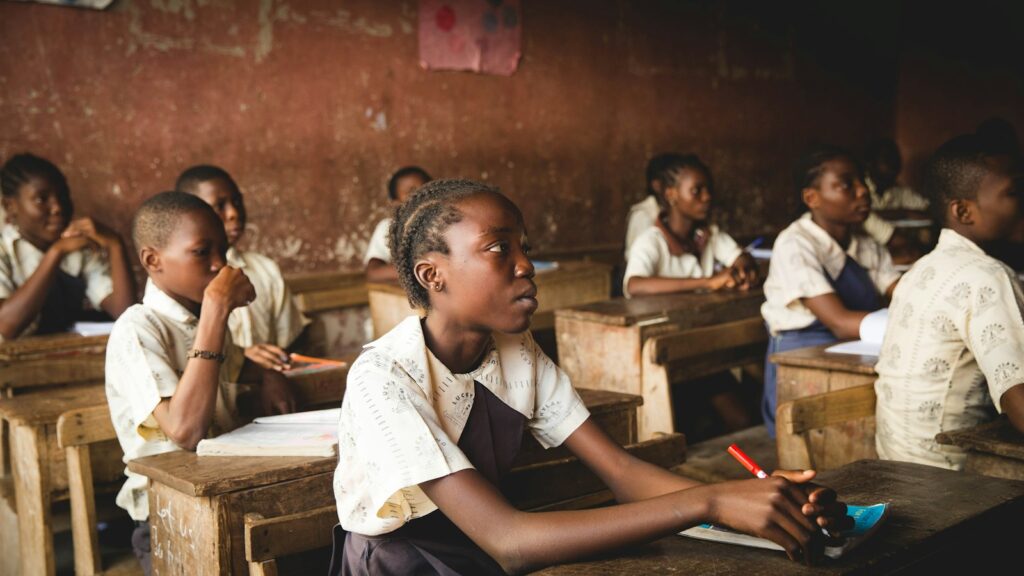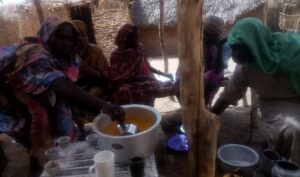Children’s Rights in Nuba Mountains/ Southern Kordofan

Introduction
Children’s rights are the human rights of children with particular attention to the rights of special protection and care afforded to minors. The 1989 Convention on the Rights of the Child (CRC) defines a child as “any human being below the age of eighteen years, unless under the law applicable to the child, majority is attained earlier.” Children’s rights includes their right to association with both parents, human identity as well as the basic needs for physical protection, food, universal state-paid education, health care, and criminal laws appropriate for the age and development of the child, equal protection of the child’s civil rights, and freedom from discrimination on the basis of the child’s race, gender, sexual orientation, gender identity, national origin, religion, disability, color, ethnicity, or other characteristics. Interpretations of children’s rights range from allowing children the capacity for autonomous action to the enforcement of children being physically, mentally and emotionally free from abuse, though what constitutes “abuse” is a matter of debate. Other definitions include the rights to care and nurturing. There are no definitions of other terms used to describe young people such as “adolescents“, “teenagers”, or “youth” in international law, but the children’s rights movement is considered distinct from the youth rights movement. The field of children’s rights spans the fields of law, politics, religion, and morality.
Since the beginning of the current war on 6 June 2011 in the Nuba Mountains/ Southern Kordofan state, (NM/SK) and in September 2011 in Blue Nile (BN) between the Government of Sudan (GoS) and the Sudan People’s Liberation Movement/Army-North (SPLM/A-N), there were a number of groups who were directly affected by this war amongst them are the children and women whom we consider as the most vulnerable groups in the Two Areas, in fact, girls are the most vulnerable among them all, as a number of elders whom we interviewed said “Girls are gone materials, therefore need not to invest much on them not even sending them to schools”.
In the Two Areas mainly the boys are the one who stay in the family even after getting married, but girls go to their husband’s families, that’s why many in the Two Areas are not encouraged in investing on girls nor sending them to schools.
Children’s rights are not respected in the most of the communities in the Two Areas for two main reasons
- Ignorance about Child Rights
- Inherited culture
Methodology used
- Use of questionnaire
- Direct interview
This information gathered after NHRMO (kukutv) spoke to 224 civilians in the Two Areas, specifically in the territories under the control of the SPLM/A – N to inform this paper.
The methodology adopted consisted of qualitative interviews with individual respondents and focus groups of 5-15 persons in both areas. In BN, the respondents included 25 women, 23 men and 4children; in SK 82 women, 78 men and 12 children. There were also focus groups of both sexes of between 10 -25 persons, also there was a one to one interview.
Group of people interviewed
- Men
- Women
- Religion leaders
- Local authorities
- Children
Purposes of the research:
- To know how far people, know about the rights of the children.
- To encourage the local communities to practice what they know about Child Rights.
- To find ways on how to improve children rights in the local communities.
- From the assessment and the findings of this research, NHRMO will be aware of the needs and the best way to use in approaching the local communities.
Body of the report
The research found out that most of the people in the Two Areas do not fully understand the rights of children, neither the people understand fully about the human rights norms in general.
Based on results found from the aged and illiterate people interviewed from the different communities, they mostly define a child as a newly born baby till he/she gets married that is when they consider them as elder and mature person. Most of them also believe that the right of the child is to get food, be protected from aggressive people or animals and be taken to clinics when they are sick.
However, for the educated people, they defined a child as a person who’s age in below 18 years old. They also mentioned that children have rights to: life, get food, to be educated and have shelter.
Most people agreed strongly that children need to be protected, they need to promote child rights and children at all age should be enrolled in schools.
However, people were having different opinions when we asked them [Should children work?] they were divided into two groups some of them agreed that children should work to help their parents as they also learn how to be parents in future! As stated by a father “I have twelve children and I divided duties for them so as to make the living easier, two are herding the cattle and others are in school, they also help in house work, but for my wife and I are to provide for them food and clothes”.
But others disagreed strongly, that children are not supposed to work at all as long as they are considered children, rather they are supposed to be in schools.
On the other hand, the most interviewees strongly agreed that in war time, children are not to participate in fighting with the army neither by supporting the army for spaying, carrying materials or carrying out other tasks. Although some disagree and said that some children were used in the army during war time because there are no schools for them.
The SPLM/ A – N authority [New Sudan Civil Authority] (NSCA), forbids recruiting children, or get them involve in combats, or even using them for any military related issues such as spying or carrying materials. As it is one of the SPLM/A – N obligation and a commitment to the signed Dead of Commitment of Child Soldier with Geneva Call in 2015.
Most people here do not involve children in making decisions only they make them implement. Because they believe that, children are not mature enough to take the right decision unless they are helped.
According to the people views about respecting the children rights or involving them in decision making, majority of people agreed that they respect the children rights because they are providing them their needs such as feeding, clothing, taking them to hospitals when they are sick, sending them to schools and listening to them when they have complains or any problem.
As defacto, we found most of the interviewees who have children and who are financially better they send their children to schools.
And almost all people who have been interviewed, are facing many challenges in sending their children to schools.
As one father mentioned that “I have six children now with me here, and I wanted them all to be in school. However, I don’t have anything to support me to keep them in school, I am only a famer together with my wife. Again, to make the matter worse, we don’t have productive land to farm in our village so that we produce better yield to support our children, the little we get we just divide it into two ratios, one for our children for school fees then the other ratio is for feeding but still it does not cater for problems” he added that the other challenges are: getting cloths, school uniform & stationeries, medication and many others are the biggest challenges I have ever faced,
The majority of the people interviewed believed that the only remedies or
solutions to these challenges are:
- Trusted and everlasting peace in Sudan.
- free education in Sudan.
- Support from the NGOs to the local communities.
Also, it has been found out that most of the children in the schools do not enjoy education fully! Simply, because they feel like they are not equal to their other fellow children in the world who they see in the books they read, media and social media, they feel like they are marginalized!
Based on the interview conducted to the different groups of people in the communities, that it has been found that, the most child violations committed are:
- child labor.
- Luck of education especially for the girls.
- There is child abuse, early marriage to both sexes.
We noticed that religions parents always guide children to the right ways and they always respect children, and wish to grow them up in adulthood.
A number of people including the local authorities agreed that they mostly discourage children for not going to schools.
The interviewees accepted that school is the most important thing in this era. Because it makes you know better about the right and wrong thing. Additionally, it improves your life style.
According to interviews, children here work during rainy season by helping their parents in farms, grazing cattle and also assisting mothers at home because that time most schools are closed.
Children here are not encouraged to join army either by the government or communities. But previously early in 1990s when there were no schools, many children were found in the army. However, now most of them joined schools
Recommendations
- Promote children’s rights in the community.
- Stop and fight all types of abuses against children.
- The government has to come up with a law and always implement it in order to promote child rights.
- Conduct workshops about child rights so that people can learn to respect the children rights.
- The government actors to reinforce/ implement laws made by the government that encouraging parents and children to be in schools.
- The government has makes sure that the children are having good security while they are in school.
- To include human right education in the curriculum.

